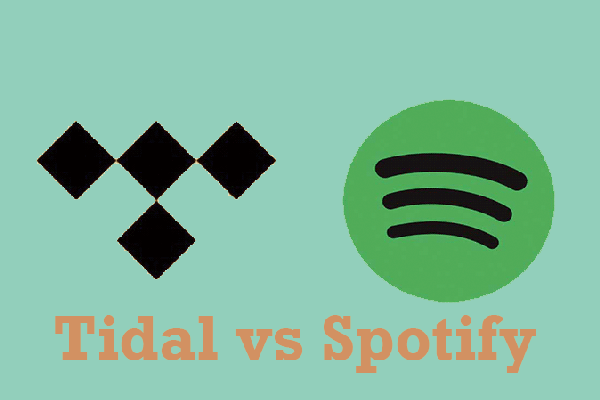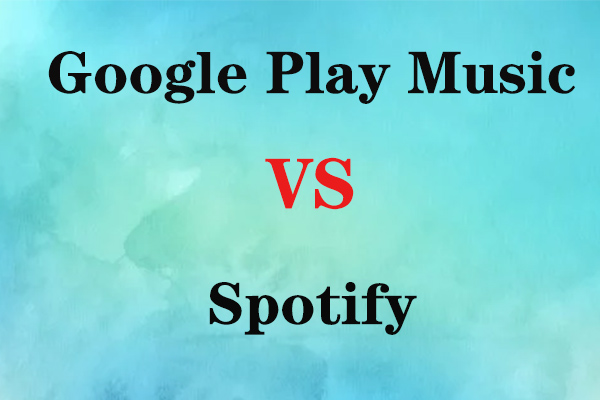Both Qobuz and Spotify are known for their user-friendly interfaces and huge music catalogs, providing unique features and advantages that adapt to different tastes and preferences. This post provided by MiniTool MovieMaker will discuss Qobuz vs Spotify based on multiple aspects, such as pricing, music library, sound quality, cloud storage, exclusive content and features, etc.
Qobuz vs Spotify: Pricing
Talking about pricing and subscription options, Spotify has been favored for a long time due to its affordability and flexibility. The platform has a free plan, ad-supported plan, and premium subscriptions at great prices that attract budget-conscious listeners.
On the other hand, Qobuz, has positioned itself as a premium service, with more expensive subscriptions, reflecting its focus on high-quality audio. Although this might put off some cost-conscious consumers, the platform appeals to those who put the fidelity of their music-listening experience at the forefront.
Qobuz vs Spotify: Music Library
Both Qobuz and Spotify provide a broad library in the music category. Qobuz now provides 70 million songs to pick from. The Music Library of Spotify vs Qobuz differ in their offerings. Because Qobuz is underrated. Spotify provides over 10,000 songs and is much more popular. Also, it now has over 248 million active users per month.
MiniTool MovieMakerClick to Download100%Clean & Safe
Qobuz vs Spotify: Sound Quality
When it comes to Qobuz vs Spotify sound quality, the former ranges from MP3 (320 kb/s) to 190 kHz Hi-Res (24-bit/9216 kb/s), while the latter ranges from Low quality (24 kb/s) to Very High quality (320 kb/s). As you can see, the lowest available quality of Qobuz is the same as the highest quality of Spotify.
Qobuz vs Spotify: Cloud Storage
This aspect of cloud storage is what users expect from music collections. Currently, Spotify uses the cloud storage offered by Google and Qobuz uses the cloud storage provided by Amazon.
Qobuz vs Spotify: Exclusive Content & Features
Qobuz and Spotify each offer exclusive content and features to attract users. Qobuz focuses on editorial curation and discovery tools, offering carefully crafted playlists, recommendations, and articles for music lovers. Furthermore, Qobuz provides exclusive releases and collaborates with artists and labels for individuals looking for rare and unique musical treasures.
In contrast, Spotify has grown in popularity thanks to its personalized algorithmic playlists, like Release Radar and Discover Weekly, which introduce users to new songs and artists and cater to their listening habits. It also supports podcasts, enabling users to switch seamlessly between music and spoken-word content.
Qobuz vs Spotify: Browser Playback
Qobuz provides browser playback capabilities as well as supports Chromecast. Spotify also supports browser playback, including Google Chrome, Microsoft Edge, Firefox, Safari, Opera, and more. In comparison, Spotify covers a broader range of browser playback categories than Qobuz.
Qobuz vs Spotify: Social Media Allowance
These days, just one app isn’t enough, the user needs more app connectivity to connect and share with friends through different apps to achieve different content sharing.
At present, Spotify enables users to share music links in the form of a post on different social media platforms, such as Facebook, Instagram, Snapchat, Twitter, and so on. Additionally, it gives users the ability to share what they are listening to with their friends and family.
Qobuz, on the other hand, doesn’t have a social media connection for sharing, but it does support Chromecast, Bluetooth sharing, and airplay. The platform is easier to use with Chrome Cast-enabled devices.
Qobuz vs Spotify: Device Compatibility
Qobuz works with Google Cast-enabled devices, whereas Spotify is compatible with iOS 12 and later, Apple Mac OS x 10.11 and later, Android OS 5.0 and later, Windows 7, and much more.
Availability of devices is offered by Spotify on a variety of devices and Qobuz has the fewest number available in terms of device compatibility.
Final Verdict
In the end, the Qobuz vs Spotify debate comes down to personal preferences and listening habits. If we look at these two platforms individually, we’ll find that they all have some excellent features that surpass each other. You can try both to see which one works better for you.
You may also like:




User Comments :